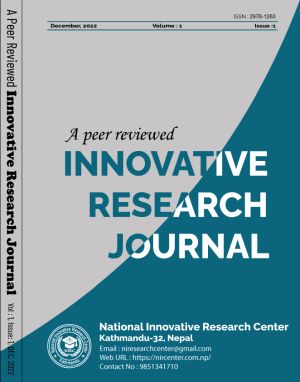Virtual diplomacy: a dominant mode of foreign policy conduct in the covid-19 world
DOI:
https://doi.org/10.3126/irj.v1i1.51839Keywords:
Diplomacy, National Interests, Virtual Diplomacy, New Normal, Statecraft, GovernanceAbstract
Diplomacy provides an important framework for negotiation and cooperation on pertinent issues of bilateral, regional, and global importance among state and non-state actors in the international community. As machinery to implement foreign policy discourse for realizing the core national interests of a country, its importance in the statecraft and global governance is considerably crucial at all times. Given the global adverse impacts of COVID-19 and consequential stringent measures taken up by countries, seamless movements of people across national frontiers have been largely limited. In the pre-COVID scenario, both state and non-state actors engaged more in direct diplomatic intercourses than in virtual ones whereas virtual diplomacy continues to gain ground even in the present New Normal. This article critically examines whether virtual diplomacy remains a dominant mode of inter-state behavior in the COVID-19 context, and also endeavors to assess the future of virtual diplomacy in post-COVID global politics. For this research analysis purpose, qualitative research methodologies such as content analysis, collection of qualitative data through a survey among professionals involved in diplomatic and non-diplomatic fields, and empirical data on Nepal’s virtual and non-virtual diplomatic engagements based on press releases published by the Ministry of Foreign Affairs of Nepal in 2020 are primarily used.




